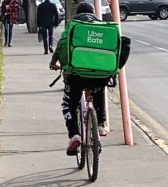Remember a time when the world seemed so big? My first trip to a foreign country was during the summer between my first and second year of medical school. My friends and I went on a backpacking trip through Europe, staying in hostels and eating the cheapest street food we could find. It was a world that was nothing like home. The languages were foreign, the food and drink different, and even the way people walked down the street was unique to their culture and country.
Explore This Issue
July 2019When I became an attending, I had the great honor and privilege of taking my first job as a junior partner of David Kennedy at the University of Pennsylvania. This was in 2003, and because of my association with Dr. Kennedy, I was invited to lecture around the world. Egypt, Saudi Arabia, Australia, and Greece were just some of the countries I visited, and again, the world seemed vast. Otolaryngologists in those countries thirsted for knowledge and were amazed by the technologies and techniques that I demonstrated. After a long day at the course, I would go back to the hotel and take in the sights, whether they be a market in Cairo or a historic site in Greece. The language and foods were different, and I knew I was far from home.
When kids came, my wife put the kibosh on international travel. We both agreed it was more important for me to be at home to help with the children and concentrate on my domestic academic career and clinical practice. I took a hiatus from international travel, and it was 10 years before I took my next international speaking trip. This past spring, I had the honor of speaking in Santiago, Chile, and Cape Town, South Africa. The joy and pleasure of meeting international colleagues was still there. So was their thirst for knowledge and appreciation for education.

Uber Eats in Santiago, Chile.
© Alex Chiu
But what was very different was the feel when I was there. These international surgeons were good—as good as any U.S. surgeon I have met at a domestic course. Although they appreciated what I spoke about, no longer were they in awe or behind in
technologic advances. Many of their surgeons had spent time training in the United States, Australia, or Canada, had state-of-the-art equipment, and were training their residents and community at the same speed that I was training my own. The Internet has made the world small; I traveled to the med schools via Uber, traded Twitter accounts with a colleague in Santiago, and talked about the local and national politics that have nearly identical economic and populist themes to our own country’s.
So, what have I learned and what is the point of this editorial? As an American surgeon, I often thought we were more advanced than much of the world. This dose of reality has injected me with a much-needed sense of humility and the appreciation of what people can achieve when the playing field is leveled. From international scientific publications to clinical care advancements, we are all now part of one scientific community. It is also another example of how diversity has advanced our specialty and how we and our patients are all the better for it.
So, when you are at one of our national meetings, and a group from an international country is speaking, please take the time to sit down and listen. I guarantee you will learn something and come to the realization that there are very few differences that separate them from you.
Thanks for reading, and I look forward to connecting again next month.
—Alex
